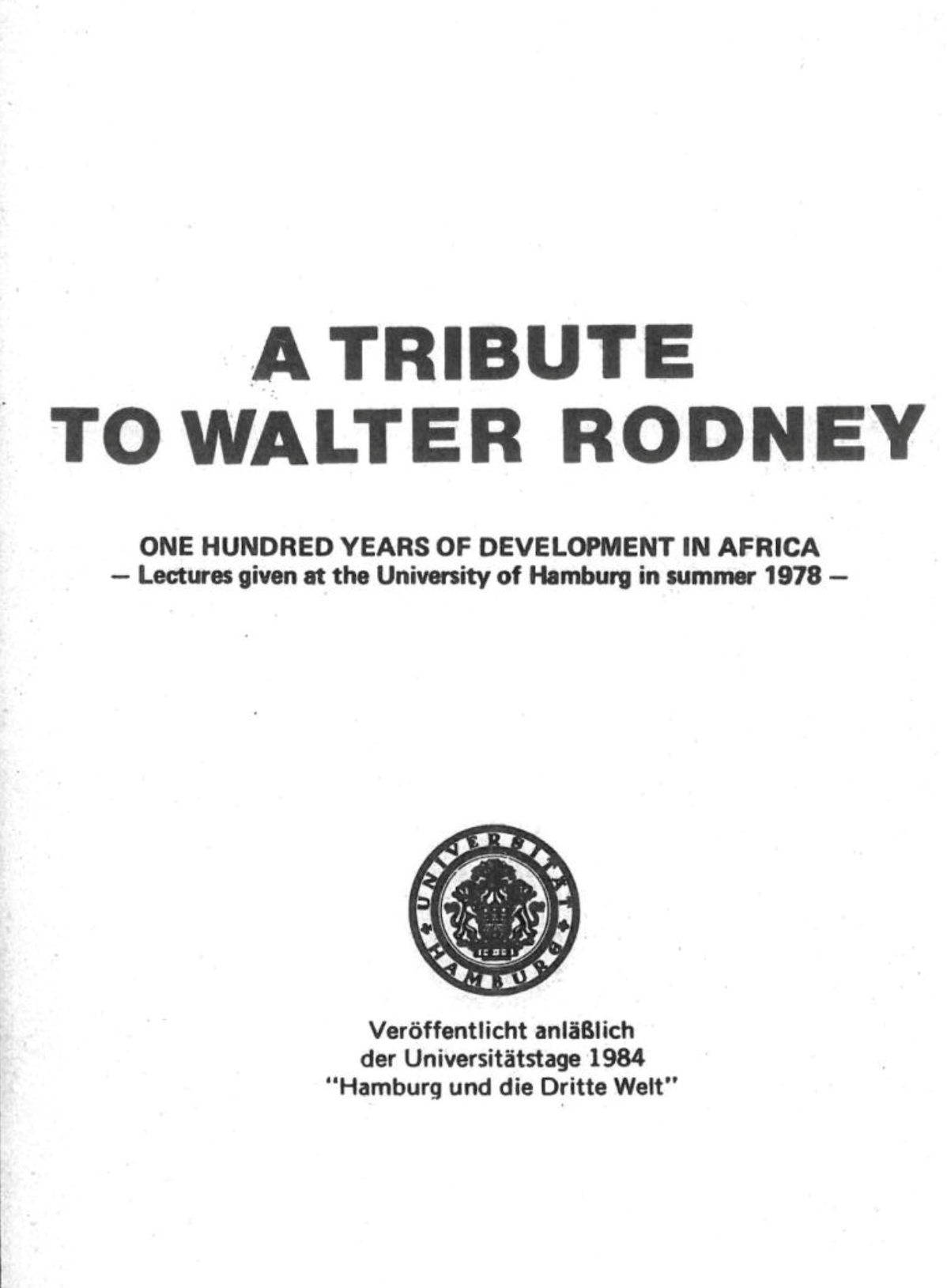
By Leo Zeilig.
One of the most astonishing books that Walter Rodney – the Guyanese revolutionary and historian – ever wrote was published several years after he was assassinated on 13 June 1980. The story of this book and how it came to be published is almost as remarkable as the life of the revolutionary himself. In 1978, Rodney was working as a full-time activist of the Working People’s Alliance (WPA) in Georgetown, the capital of Guyana. The WPA was a revolutionary organisation seeking to unite the African and Indian working class in the highly divided country, then run by the brutal Forbes Burnham. Rodney was the group’s principal organiser and intellectual, and to support himself and his family, and to fundraise for the WPA, he travelled overseas to teach and work.
One trip to Germany in 1978 shows us how his last book came to be. Rodney travelled from Guyana to Hamburg in April of that year. He was already the celebrated and outspoken author of How Europe Underdeveloped Africa, and his arrival was eagerly anticipated. He had been invited by the radical German scholar, Rainer Tetzlaff, to teach a course on the history of African development at the University of Hamburg.
The lecture course Rodney was employed to teach was titled, ‘African Development, 1878-1978’, and comprised, according to the one-page programme, ‘(i) a brief introduction to development concepts; (ii) a survey of African colonial economies with special reference to East and West Africa; and (iii) an examination of post-colonial developments in Kenya and Tanzania.’ According to the brief programme there were going to be twelve lectures, comprising, ‘The debate on development concepts in Africa’ and ‘Post-colonial development strategies’.1
Read More »


 During the high period of global neoliberalism (1980-2008) the international development community essentially banned the heterodox concept of the ‘developmental state’ from polite discussion. One of the reactions to the global financial crisis and the Great Recession that ensued after 2008, however, was a growing call for the
During the high period of global neoliberalism (1980-2008) the international development community essentially banned the heterodox concept of the ‘developmental state’ from polite discussion. One of the reactions to the global financial crisis and the Great Recession that ensued after 2008, however, was a growing call for the 
 India’s opposition leader has
India’s opposition leader has  Bradford deLong has recently argued that neoliberalism provides a way for former colonies to close the gaps with their erstwhile colonial masters. But this argument ignores the fact that several economic policies of colonial times were explicitly laissez-faire in nature.
Bradford deLong has recently argued that neoliberalism provides a way for former colonies to close the gaps with their erstwhile colonial masters. But this argument ignores the fact that several economic policies of colonial times were explicitly laissez-faire in nature.